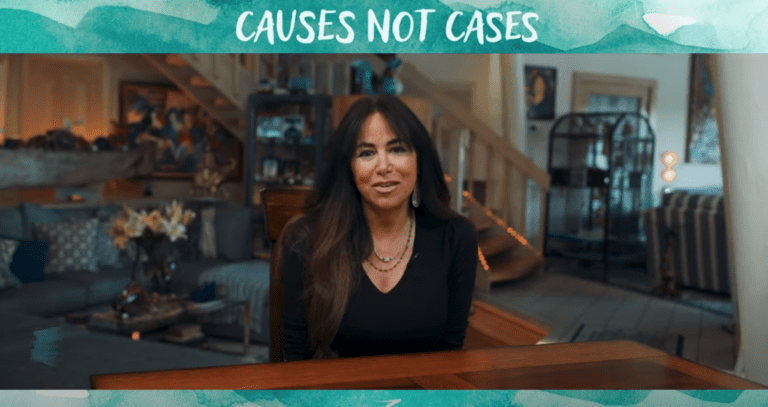Am I Still At Risk For Cancer From Belviq?
Belviq (lorcaserin) is a prescription weight-management drug prescribed to aid in weight loss when taken in combination with a nutrition and physical exercise program. In early 2020, Belviq’s manufacturer withdrew it from the market at the request of the United States Food and Drug Administration (FDA), after the FDA found evidence that taking Belviq may increase the risk of developing several deadly forms of cancer, and that the risk may increase the longer a patient takes Belviq. For more legal information speak with the skilled Belviq cancer side effect lawyer at Gomez Trial Attorneys.
The news of Belviq’s withdrawal from the market has understandably terrified patients who took it as part of a weight-management program. Many wonder whether the drug has lingered in their bodies even after they stopped taking it and, if so, what harm that drug may continue to do to their health and wellbeing. In this blog post, we (partially) address that concern and discuss how the law may protect patients who worry that they have suffered irreparable harm as a result of taking Belviq.
[lwptoc]
Answer: It Depends. Ask Your Doctor.
We should say up-front that we are lawyers, not doctors. We are not qualified to say with any certainty how long Belviq stays in a particular person’s body. Only trust a doctor to answer that question as it relates to your own health.
Generally speaking (and, again, this is not to be taken as medical advice), the exact amount of time a drug stays in the body varies according to dosage and the patient’s age, weight, sex, and physical health. Those individual differences can influence the way the body metabolizes and eliminates the drug, so the amount of time a drug stays in a person’s system can vary from one person to the next.
One measure of how long drugs stay in a person’s system that pharmaceutical researchers use, however, is called a half-life. A drug’s half-life (also referred to as elimination half-life), represents how long it takes for a drug’s concentration in the body to drop by 50 percent. A drug’s half-life refers to the characteristic interactions of a drug and the average human body in terms of its absorption, distribution, metabolism, and excretion. The half-life of Belviq (lorcaserin) is reportedly approximately 11 hours, or 12 hours for the extended-release version of the drug known as Belviq XR.
However, further research may be necessary to understand the interplay between this half-life and the risks associated with taking Belviq. Consult with your doctor to learn more.
Reported Cancer Risks Associated With Belviq
In approving Belviq for use as a weight-management drug in 2012, the FDA required its manufacturers to conduct a clinical trial to examine whether taking Belviq posed any cardiovascular risks. A five-year, double-blind, placebo controlled study of 12,000 patients concluded that it did not.
However, the study, which ended in 2018, did reveal that patients taking Belviq appeared to have a higher risk of developing cancer than those who received an inactive drug (or placebo). Also, in examining data from the clinical trial, the FDA noted that the longer a patient took Belviq, the larger the apparent risk of developing certain cancers grew.
As of April 2020, the FDA has not yet opined about whether Belviq is the direct cause of the cancers that developed in patients who took the drug. To date, however, it does appear from the clinical trial data that patients who took the drug developed cancer at a higher rate than a control group who only took a placebo.
The data suggest that pancreatic, colorectal, and lung cancers, in particular, occurred more frequently in people who took Belviq than in those who did not. These three collectively rank first, second, and fourth deadliest cancers, with an annual death toll totaling more than 250,000 people. Researchers are currently evaluating other cancers, including breast and brain cancer, in patients who took Belviq or Belviq XR.
In the meantime, as of April 2020, the FDA has advised patients to immediately stop taking Belviq or Belviq XR, to carefully discard any unused doses, and to consult with their doctors about developing an alternative weight-management plan. No matter when you read this blog post, if you have taken Belviq in the past, contact your doctor right away to discuss the latest information about potential risks.
Taking Legal Action for Actual and Potential Harm
Attorneys who represent victims of dangerous drugs have taken note of the apparent dangers of Belviq. They want to know what drug companies that produced Belviq knew about the drug’s potential link to cancer, and when they knew it. Why? Because anyone harmed by taking Belviq may have the right to take legal action against those manufacturers and, potentially, others, seeking damages.
Why Manufacturers Could Face Legal Liability
The Manufacturer of Belviq may face liability if proven either (1) that Belviq had a defective design; and/or (2) that Belviq’s labeling failed to warn patients and doctors about the possible cancer risks. A defectively-designed drug may have made taking it unreasonably dangerous to consumers. An improperly-labeled drug may have failed to give prescribers and patients adequate information with which to assess the trade-off between risk and benefit in taking the drug.
If either theory (or both of them) are proven, then anyone who took Belviq may be entitled to financial compensation from the drug manufacturers.
Who May Sue
Dangerous drugs can inflict two general types of harm on patient populations. For some patients, the principal harm consists of physical harm: developing a deadly cancer, for instance. Those patients may have the right to sue a drug manufacturer seeking compensation for that physical harm. Every one of these cases has its own unique facts and circumstances, of course. Figuring out and proving whether a particular drug caused a particular cancer in a particular patient takes careful analysis of often-complicated evidence.
However, if the patient can establish physical harm, then the lawyer’s client may have the right to recover compensation for:
- Medical expenses related to treating the harm the drug caused;
- Other financial injuries stemming from that harm, such as lost wages and earning capacity, and non-medical expenses associated with living with an illness; and
- The physical discomfort, emotional anguish, and negative life impact of the injury caused by taking the drug.
All cases have their own facts and circumstances, of course, so an attorney needs to know much more about an individual client’s condition before advising if that client has a claim and, if so, how much money the client might hope to recover.
The second type of harm that dangerous drugs can inflict on a patient population consists principally of emotional harm (at least, for now). The patients affected may not have developed a deadly cancer (yet), for instance, but they live in constant fear that they will develop it in the future.
These victims may also have the ability to take legal action for damages to compensate them for:
- The expense of monitoring their health condition for signs of disease, and of treating the disease if it develops; and
- The psychological suffering that comes with living under the stress of developing a potentially deadly illness.
Patients who suffer from this principally (for not) emotional harm often band together to take legal action as a group. A class action lawsuit allows populations of similarly situated people to act as one legal claimant, seeking compensation for the (more-or-less identical) harm they all suffered.
Steps to Take Now if You Previously Took Belviq (Lorcaserin)
We cannot provide medical advice, so our first suggestion for anyone who has previously taken Belviq (lorcaserin) is to consult with their prescribing doctor right away. The FDA recommends that anyone who still takes Belviq should stop taking it immediately. Your doctor can advise you about your risk factors and any health concerns you have. Belviq is currently under the
We can, however, make some suggestions about two steps you can take to protect your legal rights, if the facts show that Belviq’s manufacturers should have a legal liability to anyone who took that medication.
- First, collect and set aside any documents or records you have of your history of taking Belviq (lorcaserin), including your doctor’s purposes for prescribing it, any side effects or health complications you experienced, and when you stopped taking it. Be as thorough as possible. In other words: gather everything. Save pharmacy receipts, pill bottles, medical visit records, and health insurance statements. Ask your doctor to give you a record of the prescriptions written for Belviq, and ask your pharmacy for records of you filling those prescriptions. The idea is to come up with every scrap of paper or data that shows when, why, and for how long you took Belviq, so that a lawyer might use that information to prove why you have a legal right to recover damages.
- Second, keep a lookout for any information sent to you by phone, or e-mail, about Belviq and your potential legal rights. Review that information if you receive it, but do not sign or agree to anything before you speak with an experienced dangerous drug injury attorney about it. Pharmaceutical companies faced with potential legal liability for making a dangerous drug have one thing in mind: damage control. They (or their insurers) may try to reign-in that liability by offering settlements to people who took their drug. Be careful. Those settlements come with strings attached, usually involving the patient giving up any legal rights to sue for damages. Before you do anything that could limit the compensation you receive for having taken a potentially dangerous drug like Belviq, speak with an experienced lawyer.
How a Dangerous Drug Injury Lawyer Can Help
Lawyers who represent patients who took Belviq have only just begun to absorb and analyze the potential for harm and the legal rights those patients may have as a result. One aspect of that process consists of speaking with patients to develop a picture of the scope of the problem. The sooner someone who previously took Belviq connects with an experienced dangerous drug injury attorney, the better that patient’s—and all patients’—chances of recovering the compensation they deserve.
For example, an experienced attorney can:
- Evaluate a patient’s legal rights in light of the patient’s specific personal and health characteristics, and history of taking Belviq; Even after the Belviq recall was issued.
- Explain the patient’s legal options, such as whether the patient may have the right to pursue an individual lawsuit or to participate in a class action;
- Protect the patient against attempts by drug companies, insurance adjusters, and defense attorneys to limit the companies’ liability by offering lowball settlements; and
- Litigating the patient’s claims in court, if necessary, to ensure the patient receives much-needed and much-deserved compensation.
Of course, there is no guarantee that just because you took Belviq that you will recover compensation for any harm done to you. It will undoubtedly take time and significant effort for lawyers to assess the potential scope and nature of Belviq manufacturers’ liability to patients like you. However, one thing that is certain is that the sooner you connect with an experienced dangerous drug injury attorney, everyone will have a better chance of holding those drug companies accountable.
Have You Taken Belviq or Belviq XR (Lorcaserin)?
You may have taken Belviq in the hope of experiencing weight loss, then been devastated by the news of the risks associated with the drug. Belviq is no longer on the market. Still, tragically, by the time the company decided to remove Belviq from the market, there may have been untold numbers of users who now face a risk of developing pancreatic, lung, colorectal or other cancers. If you or a loved one previously took Belviq, contact an experienced, compassionate, dangerous drug injury attorney in your area to discuss your legal options.







